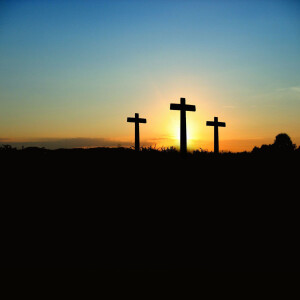17 hours ago
06-30-2025 part 3: The Power of the 5,000: A Lesson in Faith, Gratitude, and Redemption

Section 1:
The broadcast opens with a warm welcome and transitions into a heartfelt appeal for support. David emphasizes that while he and Noelle have borne much of the financial burden for the ministry, they now need others to step in generously to help sustain the mission through the current and coming month. Despite the call for support, there's a clear message of inclusiveness and grace: even those who can't afford to give are still fully loved and welcomed. There is also a humorous interlude featuring a soundbite about remembering the Alamo, reinforcing the show's unique blend of depth and levity. The segment sets the tone for a deeper exploration into the message drawn from the miracle of feeding the 5,000 in Mark 6.
Section 2:
David then shifts to the biblical text, highlighting how Jesus directed the people to sit down, an act symbolizing rest and stillness amidst anxiety. Drawing on humorous personal analogies, like his excitable dog Bert, David makes a compelling point about the need to calm down and trust. The pivotal verse—Mark 6:41—marks a shift: Jesus takes the loaves and fish, looks to heaven, and gives thanks. This moment, according to David, encapsulates the source of divine provision. The emphasis is that Jesus didn’t look to the crowd, the need, or a bank account—but to heaven, the true source. Gratitude, even in perceived lack, becomes the gateway to miraculous abundance, challenging listeners to adopt the same attitude of thankfulness regardless of circumstance.
Section 3:
The teaching concludes with a powerful theological reflection on waste and redemption. David confronts the mistaken belief that past years of failure or sin render a person useless. He affirms that God, who doesn’t waste even the crumbs from a miracle, likewise doesn’t waste the experiences of our lives. Every event, relationship, and lesson has purpose, even if it seems futile in the moment. Using examples like Moses’ 40 years in the desert or Elijah and the widow, he underscores that what we think is “wasted” can become a training ground for God's greater plan. The message closes with a reminder that only the Creator can satisfy the creation—and a passionate prayer of gratitude and repentance that ties the whole message together in humility and hope.
No comments yet. Be the first to say something!